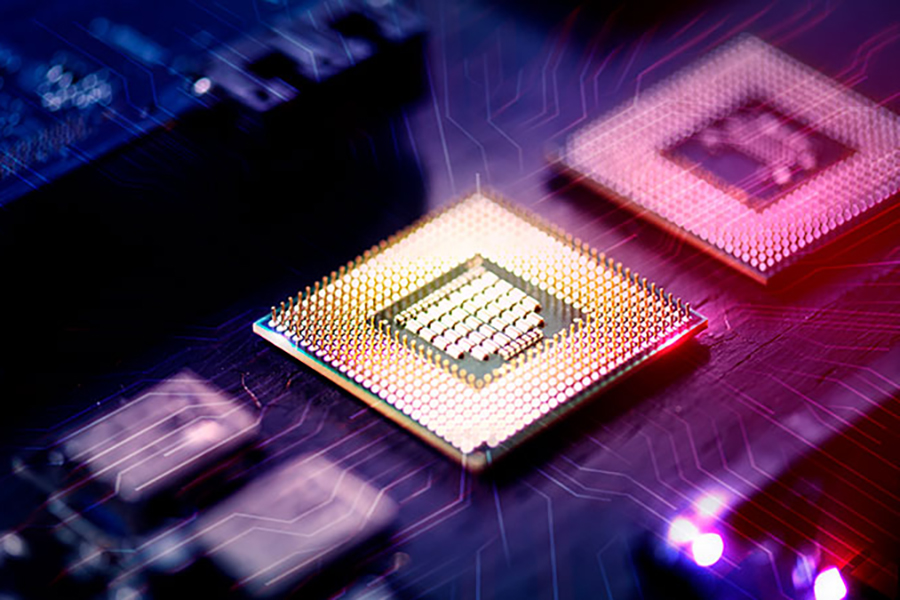Purdue engineer focuses on the future of microelectronics now

Workforce plan necessary to put US on par with competing countries
Secure microelectronics and a future workforce capable of providing them are essential to the U.S. economy and security, says a Purdue University engineer.
Peter Bermel, the Elmore Associate Professor of Electrical and Computer Engineering, is focused on both sides of the equation. He directs efforts at Purdue to create a future microelectronics workforce and researches cyberphysical security gaps in the field.
“There is a rapidly developing workforce need in microelectronics and an increasing need for the U.S. to catch up compared with other countries,” Bermel said. “It’s a priority that we ensure students coming out of universities are motivated to work in specific microelectronics areas to drive the U.S. economy and security forward in the future.”
Purdue is a national leader in microelectronics devices and packaging research, spanning the semiconductor ecosystem in software and hardware.
Bermel leads the SCALE (Scalable Asymmetric Lifecycle Engagement Microelectronics Workforce Development) program, which brings faculty across the Purdue College of Engineering together with faculty from 16 universities, the U.S. Department of Defense, NASA, the Department of Energy’s National Nuclear Security Administration labs, and the defense industry to create a microelectronics workforce focused on national security needs.
Bermel has developed an advanced secure electronics software and hardware platform serving a broad range of potential users. He also successfully demonstrated new electronics capable of extended lifetimes under extreme conditions.
Associated Press members with access can find an explainer video on microelectronics from Bermel. Another video is available via the Associated Press of Bermel discussing the future of microelectronics workforce.
More information about Bermel
- Bermel recently spoke during a panel discussion regarding SCALE and Purdue’s microelectronics efforts.
- Bermel researches improving the performance of microelectronics, photovoltaic and thermophotovoltaic systems via nanophotonics, the optics subarea of nanotechnology.
Source: Purdue engineer focuses on the future of microelectronics now
